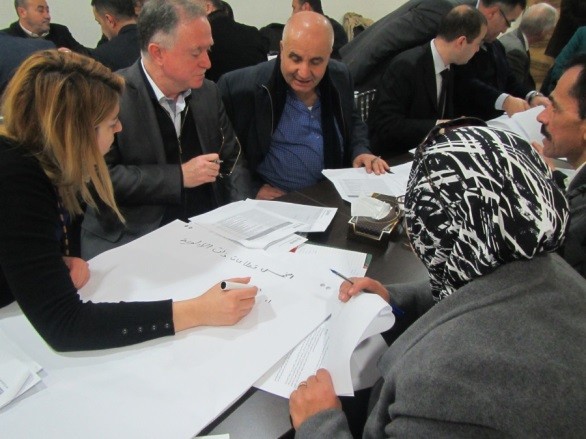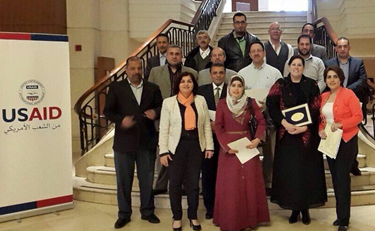Background

Recent events reinforce the fact that the time is right for the Jordan Workforce Development Project’s (WFD) employment efforts. Both HM King Abdullah II and the U.S. Embassy have recently called for Jordan to prioritize the productive employment of its people.
The goal of WFD is to create a competitive, demand-driven workforce development system that leads to increased private sector employment – especially for women, youth and those living at or below the poverty line. The project focuses on six governorates: Amman/East Amman, Zarqa, Irbid, Tafilah, Ma’an and Aqaba. WFD is in the process of establishing three regional offices that will work directly with local authorities and businesses to fully support sustainable vocational and technical training that leads to jobs in the private sector.
Project overview
Enhancing technical and vocational training in targeted areas and sectors – The project will deliver quality vocational education through better curriculum in line with international best practices, with top-quality instructors and modernized training facilities, is crucial to project success. WFD will enhance the quality of the vocational education system to attract both students and local business support as an important pathway to employment.
Providing a clearer path to jobs through more effective labor market information systems, career counseling, mentoring, outreach and job placement - An integrated and effective Labor Market Information System (LMIS) is crucial to employers, job seekers, students, educators, and policymakers. WFD will increase awareness of labor market conditions through improved information collection/data validation methods and by directly engaging with communities and businesses in the target governorates. The project will also enhance career guidance processes to make finding work easier.
Engaging women, youth, and those living at or below the poverty line in a wider range of jobs - The project will address the challenges and barriers (both physical and social) that inhibit the participation of women, youth and vulnerable groups in Jordan’s labor market. This effort includes a set of integrated and tailored initiatives to tackle socio-cultural mindsets and negative attitudes toward the vocational sector.
Improving the rules on workplace safety and certification/accreditation of Technical Vocational Education and Training (TVET) - WFD will advocate for good working conditions through support of enhanced occupational safety, health standards, and other policy initiatives. Strengthening certification, accreditation, and licensing of the technical and vocational education process is also critical to this work.
Activities & ACCOMPLISHMENTS

- Identified priority sectors, sub-sectors, and occupations in each governorate based on stakeholder input.
- Assessed the needs of twelve vocational training institutes (VTIs) in targeted governorates.
- Developed a “Work Ready Now” tool to improve the teaching of soft skills in VTIs across the country.
- Held eighteen brainstorming/listening sessions to gauge mindsets as an important first step in developing an Attitude and Behavior Change Strategy to encourage women and youth to enter vocational and technical careers.
- Developed a guide for a civil society grant process that will assist youth and women in the workplace.
- Held a series of occupational safety and health (OSH) supervisor workshops, fully training twenty participants in test development and administration for the OSH supervisor training course. The workshops also resulted in a Centre for Accreditation and Quality Assurance-approved national OSH curriculum framework.
- Evaluated student tracking systems at the National Center for Human Resources Development, Japan International Cooperation Agency, the United Nations Relief and Works Agency for Palestine Refugees in the Near East, Vocational Training Corporation, Ministry of Labor, and VTIs in the project’s six target governorates.







Comment
Make a general inquiry or suggest an improvement.